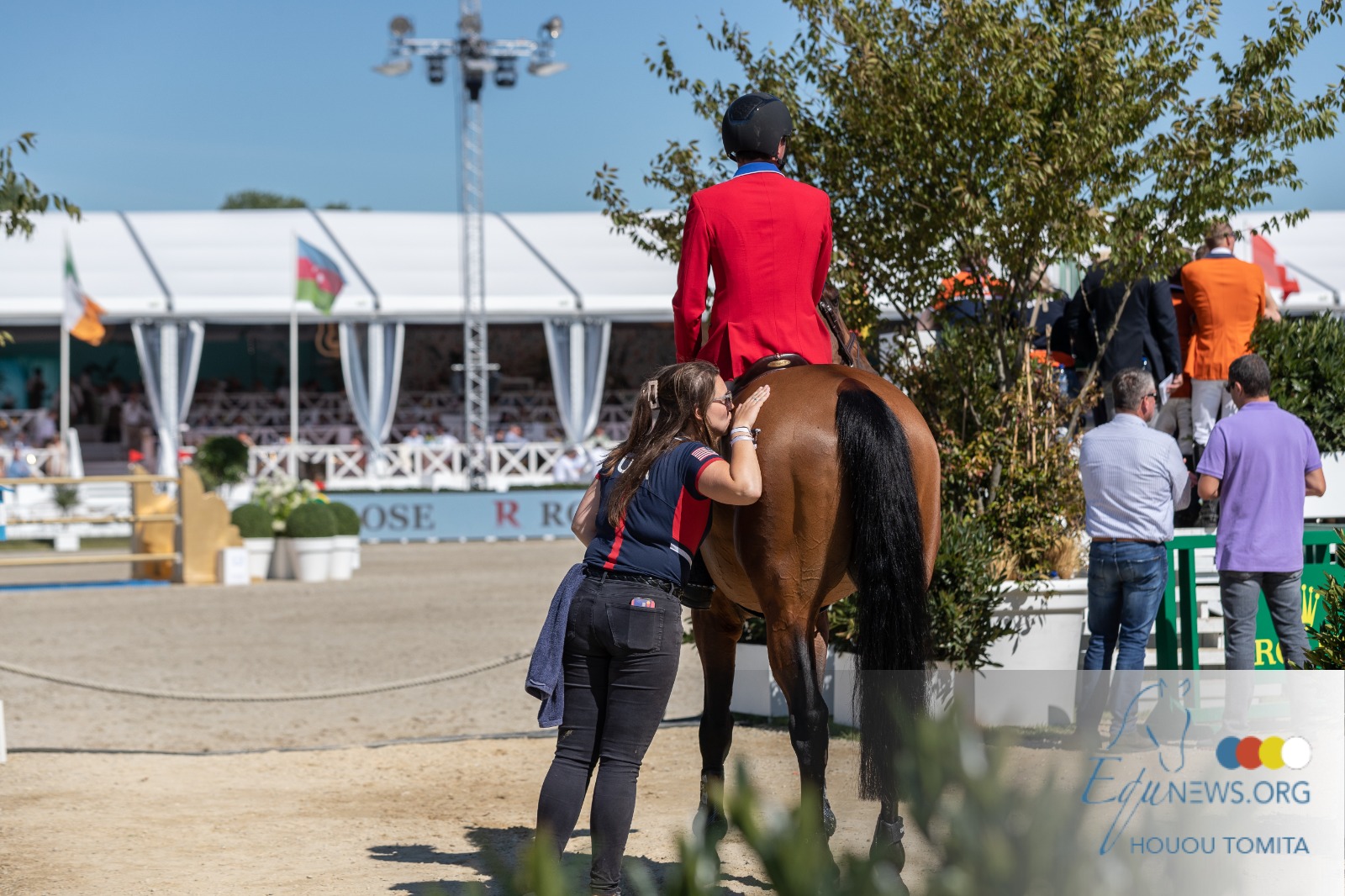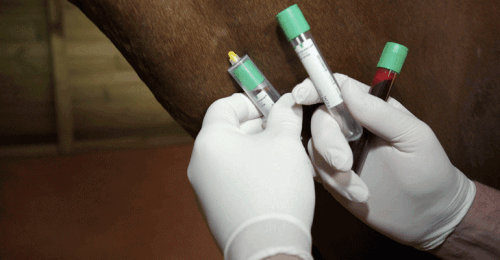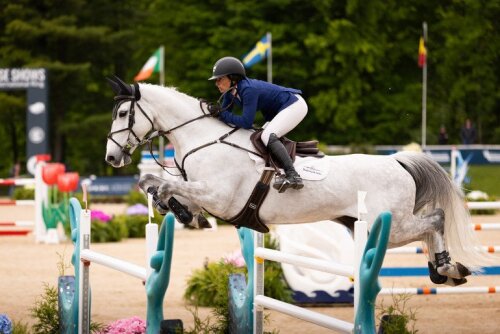In short
the FEI is considering mandatory use of specific service providers (such as data processing companies).
Restrictions on late-evening classes, proposed by the IGA, have been rejected...
In line with the FEI’s regular rule revision cycle, the Jumping Rules will undergo a full review next year. Several national federations have taken this opportunity to submit proposals on a wide range of topics, including mobile phone use while riding, falls and eliminations, veterinary inspections, and prize money distribution.
Changes to the ‘Blood Rule’ Proposed by the FEI
At the initiative of the Irish, Swedish, and U.S. federations, along with the International Jumping Riders Club (IJRC), the FEI is proposing amendments to Article 241.3.30, better known as the “blood rule.” The revised wording is as follows:
-
Art. 241.3.30: Minor traces of blood on the horse’s flank will result in an official warning in jumping competitions.
-
Art. 241.3.31: If blood is visible in or around the horse’s mouth — in mild cases such as a bit-related wound — the horse may continue after rinsing. Repeat bleeding will result in a warning. Two or more official warnings within twelve months will lead to a CHF 1,000 fine and an automatic one-month suspension.
Other Approved Rule Changes in Jumping
-
More horses per rider at CSI events: On a proposal from the Swiss federation, the number of horses allowed per rider is increased from three to four.
-
Mandatory declaration when using speed classes as training: Riders must declare in advance if they intend to use a type A or C class as a training round. Failure to declare results in elimination — a Swedish proposal that has been approved.
-
Presence required at veterinary inspections: For championships and finals, the rider (or a designated person) must present the horse at the inspection. However, the rider themselves must also be present. Non-compliance leads to a CHF 2,000 fine — a partially adopted Dutch proposal.
-
Second round Grand Prix regulation: Following proposals from Brazil, Switzerland, and the IJRC, all riders with zero penalties are now allowed to return for the second round, even if that number exceeds what was originally planned in the program.
Rejected Proposals
-
Restrictions on late-night classes: The International Grooms Association (IGA) and the Grooms Consultative Group (GCG) proposed limiting classes to between 8:00 a.m. and 11:00 p.m., with a minimum of 10 hours rest for the horse. The FEI rejected the proposal, stating these limits are already reflected in event schedules, and non-compliance may lead to sanctions.
-
Mobile phone use while riding: Both Ireland and the Netherlands proposed banning mobile phone use while mounted. The FEI rejected these proposals, stating this falls under the supervision of officials.
-
Minimum Entry Requirements (MERs) for FEI events: Austria requested that the FEI encourage other countries to implement similar MERs. The FEI rejected this and reiterated that national federations remain responsible for selecting their own athletes.
Changes to the FEI General Regulations
The General Regulations are also being revised. Key highlights include:
-
Prize-giving ceremonies after 22:00 limited: Only the top three riders are required to attend prize-givings held after 10:00 p.m. — a proposal from the IGA and GCG that was approved.
-
Warning and fine system: Two warnings within 12 months will result in an automatic CHF 2,000 fine; three warnings, CHF 3,000; four warnings, CHF 4,000. This applies to all disciplines, with extra emphasis on jumping and driving.
-
Tack and bitting rules moved to separate documents: The FEI plans to remove tack and equipment rules from the general rulebooks and move them into discipline-specific documents. For jumping, this may be implemented starting January 1, 2027.
-
Mandatory use of FEI-certified suppliers: Organizing committees may be required to use specific FEI-approved service providers (e.g., data processors).
-
Mobile phone use while riding rejected again: Switzerland’s similar request to ban phone use while mounted was also turned down.
-
Hyperflexion not explicitly classified as abuse: Poland requested that hyperflexion be added to Article 142 as a form of abuse. The FEI declined, stating it prefers to wait for further research and feedback from working groups.



